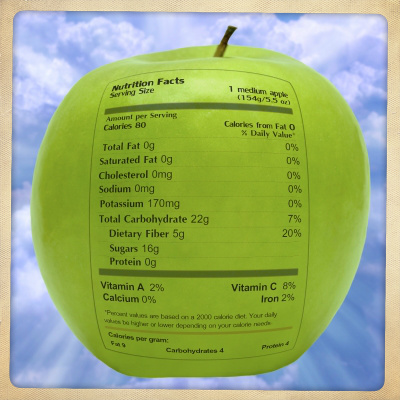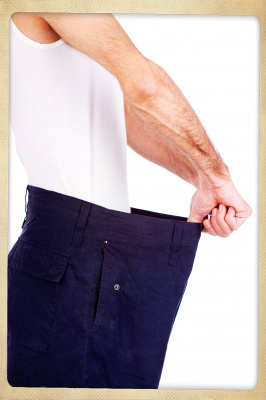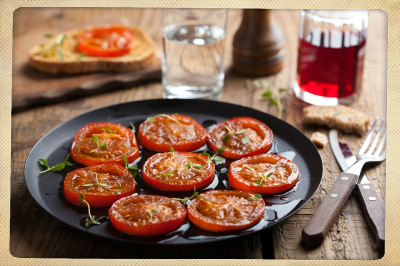
I have never met anyone who has kept their excess weight off for an entire lifetime by sticking to calorie counting. Plus, if counting calories really worked so well, and the solution was so simple we would not be facing an obesity epidemic in the UK and USA.
Calorie counting still holds strong in a lot of peoples minds as the resolution for losing excess fat. Whilst it may appear to make you lose some weight, it can in fact make you put on more weight in the long run if you live by it and keep using it as your go to for weight management.
Counting calories will not help you become truly healthy as being healthy means so much more than achieving your optimal weight. There are also much better ways, much less dangerous ways to become truly healthy, and maintain your ideal weight in the long run. Which is what we are all about here at Great Health Naturally – long term solutions. So this means you can kiss goodbye to those silly starvation diets that do so much more damage to your metabolism than you will ever know!
You could be forgiven for thinking calorie counting has been around for centuries, when in fact it has not. It first reared its ugly looking head at the turn of the 20th century. It was then that Wilbur Atwater noticed if you put food in a machine, called a “bomb calorimeter,” and then burned it – you could measure the ash and heat to find out how much “energy” was released and therefore how much “energy” was in the food.
The idea obviously caught on because a lot of people still use this principle today to try to lose their excess fat. But my message is simple – foods contains much more than simply ‘calories’, such as; vitamins, minerals, amino acids, carbohydrates, fats, and water. It is the levels of each of these nutrients in each food that actually counts and what we should be paying attention too, as well as avoiding foods that create nutrient loss, are poor in nutrients in the first place and contain toxic ingredients or turn into toxic ingredients when cooked.
The more we process a food or a liquid – the more nutrient loss occurs and the more unrecognisable the food or liquid is to the body. The more unrecognisable a food or liquid is, the harder it is for the body to break it down and access any nutrients the body can use, and therefore the greater the spend of stored nutrients in breaking down this low level nutrient food or liquid in the first place.
Our focus here when it comes to getting truly healthy is about so much more than just losing weight. It is about maximising the amount of nutrients you get from every single meal or liquid you put into your body on a daily basis and avoiding any potential toxic ingredients that cause ill health. If you are not doing this, it is very easy to start teaching yourself to do so, starting right now at your next meal.

A Few Examples of Low-Nutrient, Processed foods & Liquids:
- Alcohol
- Refined Cane Sugar
- Cakes
- White rice
- White pasta
- Ready made meals / Take away meals
- Buffet food in a food court (unless made fresh daily)
- Cereals (unless raw, organic and advertising minimal processing techniques used)
- Juices that have a long shelf life, and do not require refrigeration until opened
- Fizzy drinks
- Inorganic conventionally grown food
- *Oils and *fats cooked at a high heat *this does not apply to coconut oil
I am not a fan of calorie counting for weight loss and have never, and will never teach my clients how to do it when they come to me to lose weight. I don’t believe for one second that being healthy and achieving your ideal weight should be so stressful, and that is what calorie counting is. Not only is it a very dangerous way to lose weight which I will discuss below, it also breeds a poor mental image of oneself, and eating disorders on various levels.
Counting Calories will Damage Your Metabolism in the Long Run
I cannot deny that people that embark on an initial calorie counting diet lose a little weight. But what is lost is not necessarily fat. If you are on a low calorie diet, fad diet, or crash diets as they are known, what you are going to be losing is in fact muscle mass and water – not fat, which is not at all healthy. Ensuring we are burning fat is healthy.
Also, another problem with the low calorie diet is that by burning a lot of muscle this can slow down our metabolism. This happens because the body realises that there is less food coming in, so it slows down how many calories it burns so that it can survive on the new lower calorie intake. It then in turn becomes a bit more wary of using up energy, and so is more selective.
Both of the above situations are obviously awful and very detrimental to our health and what makes counting calories not a healthy option. Our muscles needs to be preserved at all costs when losing weight. A successful weight loss program will help you to keep the muscle and burn the fat only.
You may have experienced this yourself, getting some what appear as good initial results on a low calorie diet for a few weeks. However after a few weeks you notice your ”weight loss” results have come to a halt. This is because your metabolism has slowed down completely to adjust to the low calorie intake and is burning next to no fat, because it doesn’t want to as it is trying to protect your health and stop you losing more muscle and water.
It is at this point your body thinks it is experiencing a real-life famine, and so acts like it is in danger of never getting more food again so starts to store the weight again. When your body’s metabolism slows you will then need to consume less and less calories just to maintain the same weight which will not be your optimal weight. You will still be overweight. This is where the more you go up and down in weight over the years because of yo-yo dieting on low calorie diets, the more you can permanently damage your metabolism and struggle to lose weight efficiently even when you start to eat health promoting foods. At this point you will need to seek out a specialist nutritionist who can help work with you to repair your metabolism, and this can take many months to put right.

Not All Calories are Equal & What about the Ingredients & Nutrients?
Another major drawback with simply calorie counting to lose weight is that not all calories are equal. The saying, ”A calorie is a calorie”, does not add up anymore.
Lets take a bag of sweets as our example, and say it is approximately 100 calories, and another food that contains the same amount of calories is a small chicken breast and a couple of pieces broccoli. In the long run, which of the two choices containing both 100 calories would keep you healthiest if you could eat only one for the rest of your life?
Of course it would be eating the 100 calories in the chicken breast an broccoli day after day compared to the person eating the same amount of calories in sweets. This comes down to my whole point – it is not the amount of calories found in the food that matters. The broccoli and chicken contain nutrients that the body needs and uses to build healthy bodies, plus no toxic ingredients the body does not need. Whereas the ingredients in the sweets such as refined cane sugar, artificial colourings and flavourings for starters are not ingredients for creating great health, but rather for creating weight gain.
It is vital to your health and your families health to start reading the ingredients label on food (found on the back usually not the front!) if you wish to be healthy for the rest of your life, and not merely shed a few pounds. Learning to avoid buying foods that contain processed, artificial foods and refined sugar is the key to maintaining a healthy weight.
As I have heard far too many people say that you can still eat rubbish foods, because all you need to do is train harder to burn it off. Its like all they think makes good health is burning off calories! When as I have said before it is not that simple. Lets look at this from another angle. What about the effects you can’t undo by burning off calories from ingesting toxic ingredients such as heaps of white, processed cane sugar in every meal?
When ingesting sugar is linked to causing tooth decay, diabetes and even cancer – it is hard for me to believe that by simply ‘sweating it off’ will prevent these illnesses. The sensible thing to do is to actually stop eating foods with the disease promoting ingredients in, and to assess everything you put into your mouth in an intelligent manor – which is, ”This food and its ingredients will either cause me health promoting effects or health destroying effect. Which one do I choose?”

Create a Healthy Relationship with Food and your Body and Mind will Thank You
The ‘secrets’ if you will to achieving a healthy body weight for life is about namely becoming a conscious eater. To become truly healthy you first need to realise food is not your enemy, and that food is not an emotional support system you can use to make you feel happy after having a bad day at the office.
Food is fast becoming in the western world the ‘drug of choice’ or ‘crux’ to help people cope with this fast paced lifestyle most of us lead. Food should simply be seen as nourishment for our bodies and minds, and if we do not have a healthy body or mind chances are our relationship with food is distorted. It does not mean we can’t enjoy the great nourishing food we eat! Far from it – we should love the food that nourishes us, that we have chosen with consciousness and thought, and savour every mouthful.
Check out my other tips below that could help you have a better relationship with food, and in turn help you achieve a healthy body weight:
- Do Not Starve Yourself or Skip Meals – Starving yourself of food or skipping meals opens up a whole can of worms and is not the solution for long term weight loss. Also, skipping meals can make you very moody and stressed because we need to feed our brains also with the blood glucose it is turned into. If we do not have a steady flow of blood sugar (glucose), our brain will not be fed as much as it needs to be to keep doing the many jobs it has to do, and eventually our mind and behaviour will suffer as a result.
- Eat Foods That Suit You – Do you feel tired after eating a particular food? Get bloated? Feel sick? If so then this is not normal and you should probably not be eating this food. It may be also an indication of a bigger problem underlying so it is best to get it checked out by your nutritionist and doctor for second opinions.
- Address Your Addictions – It is OK, we all have them. But just not everyone uses food as their emotional coping mechanism. For example, if you are one of those who calorie counts because they have issues with over-eating and weight gain and do not feel you have another option, then I would suggest seeing a therapist or a food psychologist to help resolve the underlying emotional problems that are causing your issues with food in the first place. In fact I feel everyone could benefit from a food psychologist as we all have vary degrees of warped relationships with food. Sometime these issues stem from the views on foods our parents and peers taught us when we were children and they have stayed with us for life, getting in the way of us breaking an unhealthy habit. Have you ever wondered why you think of food the way you do? I am about promoting a healthy mind not just a healthy body, because you cannot have a healthy body without a healthy mind! Plus, you cannot also be overweight and be eating healthy – the two just do not go together.
- Focus Less on Instant Results – Calorie counting teaches people that you can get quick results if you are overweight. I hope you now realise you could be losing precious muscle and water instead of fat, and now wish to get long term results in a safer, and more gentle way.
- Slow Down Your Eating – By relaxing when eating, and slowing down the pace at which you eat will work wonders for your digestive system too. Because if you are stressed the body cannot stress and digest food at the same time, well not properly. Plus, you will not chew your food properly so you will not release the right amount of digestive enzymes in your cheeks needed to make digestion happen in the first place.
- Choose Small Portions – Take a small bowl or plate of food at first, eat slowly, and then if after 20minutes or 30minutes you still feel hungry go take another small bowl or plate of food. By allowing yourself to slow down your eating and eating only one small amount of food every 20minutes you are teaching yourself to not over eat because it is around the 20 – 30 minute mark our food hits our stomach and tells us how full we are.
- Rotate you Foods – Eating the same foods day in and day out, will mean you are only ingesting a certain amount of nutrients, and only specific nutrients not all the nutrients you need to thrive. So, by ensuring you eat a variety of different fresh organic foods daily, you will be on your way to maximising your nutrient intake and increasing your health levels, energy levels and powering up your metabolism to burn off fat.
- Exercise – What is sometimes overlooked is the power of exercise. This can boost your serotonin levels which makes you feel happy as a result, gets you detoxing through sweating, and helps fire up your metabolism to help you to lose weight and tone up.
If you are considering losing weight, please seek the help of a qualified nutritionist or health professional first. Especially if you suffer with a chronic disease or are taking prescription drugs.